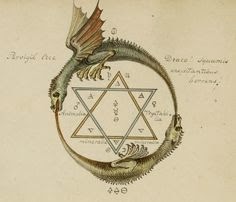Philosophical Imaginatrix: The Enchiridion by Epictetus
Enchiridion means the art of happiness. The book was written by Arrian one of the student of Epictetus around 100 AD. Arrian later wrote the biography of Alexander the Great. Epictetus is one of the key stoic philosopher. Epictetus was a former slave. His master was Epaphroditus, who was on of the Emperor Nero's personal guard. Epictetus gives a very unusual and authentic insight into life. Epictetus tells us that to be tranquil and happy is to go with the flow of life. Just flow.
Enchiridion provides a practical view to life which focuses on understanding how we can manage our grief with understanding. To endure the misfortunes of life by character and apatheia (clear judgement). To do so, the four key virtues of life are:
1. Sophrosyne: Self Control2. Dikaiosyne: Authenticity/ Righteousness3. Sophia: Wisdom/ Prudence4. Andreia: Courage/ Fortitude
Epictetus puts a great input into the understanding of acceptance. Which is one of the key theme of Stoicism. Acceptance means to submit to Zeus. This submission would allow the person to gain equanimity in accordance to the universe. Fighting with our destiny would only lead to more suffering. Marcus Aurelius, another Stoic philosopher, in his book Meditation also puts the same concept of accepting the woven. Epictetus noted that its not the event that are painful but the feeling toward it, which makes us grief and be in pain.
Enchiridion also focuses on the theme of life and death. And man has to look at the larger picture. We have absolutely no control over the dices of our life. We must be aware of those things that makes us happy, and that happiness would only get a form if we give attention to those things that we have power over. Eg. Attitude. We must trim of desires and aversion to a minimum. Epictetus says,
"Let death and exile and every other thing which appears dreadful be daily before your eyes; but most of all death: and you will never think of anything mean nor will you desire anything extravagantly."
Our suffering comes from our own ego. We must acknowledge life as it comes. And that ultimately leads to happiness.
Acceptance and change run parallel. Stoicism looks into eudaimonia, which means happiness which comes from a greater divine intelligence. To not fight with the world, or judge it; but to accept it. That way we can find true bliss. Our life must be practical. As practical as possible. The sense of equanimity means to accept everything with absolution, what happens to us are justifiable. And we must grow beyond them. This highly correlates with the eastern understanding of Karma. The other way to define EUDOMONIA is to look at it as an excellence in temper.
Some key notes from the book:
1. Some things are in our control and others not. Things in our control are opinion, pursuit, desire, aversion, and, in a word, whatever are our own actions. Things not in our control are body, property, reputation, command, and, in one word, whatever are not our own actions.
2. Remember that you ought to behave in life as you would at a banquet. As something is being passed around it comes to you; stretch out your hand, take a portion of it politely. It passes on; do not detain it. Or it has not come to you yet; do not project your desire to meet it, but wait until it comes in front of you. So act toward children, so toward a wife, so toward office, so toward wealth.
3. Never call yourself a philosopher, nor talk a great deal among the unlearned about theorems, but act conformably to them. Thus, at an entertainment, don't talk how persons ought to eat, but eat as you ought. For remember that in this manner Socrates also universally avoided all ostentation.
4. The will of nature may be learned from those things in which we don't distinguish from each other. For example, when our neighbor's boy breaks a cup, or the like, we are presently ready to say, "These things will happen." Be assured, then, that when your own cup likewise is broken, you ought to be affected just as when another's cup was broken. Apply this in like manner to greater things. Is the child or wife of another dead? There is no one who would not say, "This is a human accident." but if anyone's own child happens to die, it is presently, "Alas I how wretched am I!"But it should be remembered how we are affected in hearing the same thing concerning others.



Comments